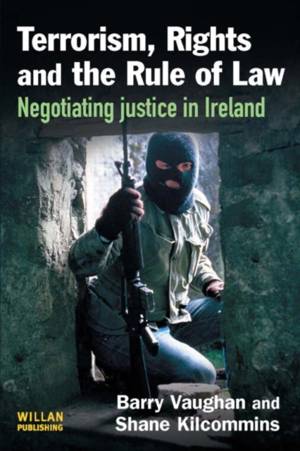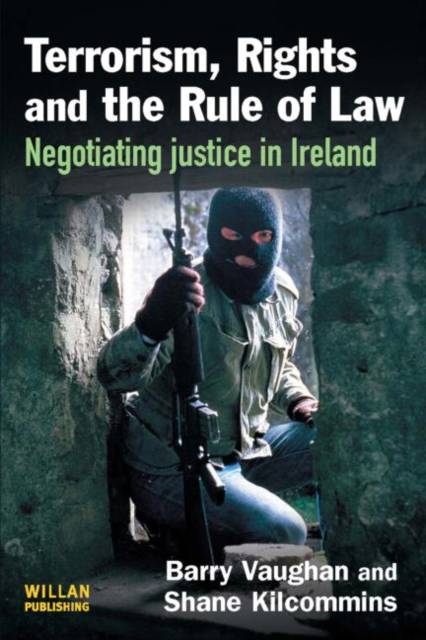
- Afhalen na 1 uur in een winkel met voorraad
- Gratis thuislevering in België vanaf € 30
- Ruim aanbod met 7 miljoen producten
- Afhalen na 1 uur in een winkel met voorraad
- Gratis thuislevering in België vanaf € 30
- Ruim aanbod met 7 miljoen producten
Zoeken
€ 88,95
+ 177 punten
Omschrijving
The rule of law is becoming a victim of the struggle against terrorism. Many countries are reviewing their security procedures and questioning whether due process rights hinder them in the war on terror. There is increasing emphasis on preventive detention or strategies of disablement that cut into the liberties of suspects who may not have committed a crime. The focus of this book is the Republic of Ireland, where the risk of political violence has constantly threatened the Irish state. To ensure its survival, the state has resorted to emergency laws that weaken due process rights. The effects of counter-terrorism campaigns upon the rule of law governing criminal justice in Ireland are a central feature of this book. Globalization has supported this crossover, as organized crime seems immune to conventional policing tactics. But globalization fragments the authority of the state by introducing a new justice network. New regulatory agencies are entrusted with powers to control novel risks and social movements adopt a human rights discourse to contest state power and emergency laws. The result of this conflux of actors and risks is are negotiation of the model of justice that citizens can expect. Terrorism, Rights and the Rule of Law contributes to current debates about civil liberties in the war on terror, how counter-terrorism can contaminate criminal justice, and how globalization challenges a state-centred view of criminal justice. It will be of key interest to students of criminology, law, human rights and sociology, as well as legal and other practitioners and policy-makers.
Specificaties
Betrokkenen
- Auteur(s):
- Uitgeverij:
Inhoud
- Aantal bladzijden:
- 242
- Taal:
- Engels
Eigenschappen
- Productcode (EAN):
- 9781843922643
- Verschijningsdatum:
- 1/12/2007
- Uitvoering:
- Paperback
- Formaat:
- Trade paperback (VS)
- Afmetingen:
- 156 mm x 234 mm
- Gewicht:
- 344 g

Alleen bij Standaard Boekhandel
+ 177 punten op je klantenkaart van Standaard Boekhandel
Beoordelingen
We publiceren alleen reviews die voldoen aan de voorwaarden voor reviews. Bekijk onze voorwaarden voor reviews.








